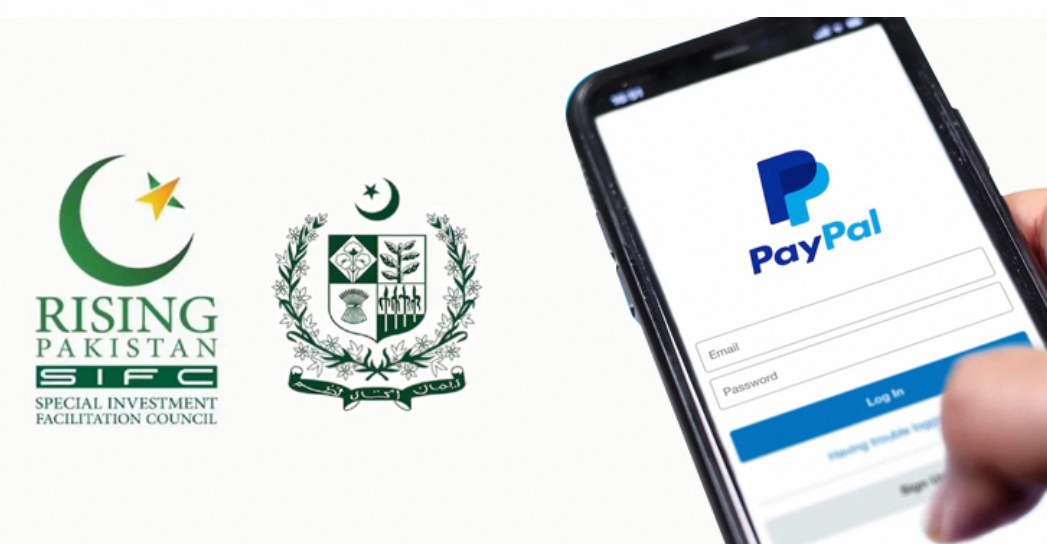The Special Investment Facilitation Council (SIFC) marked its second anniversary with a major announcement set to transform Pakistan’s digital economy: the long-awaited launch of PayPal services for freelancers. The announcement, made at a commemorative event in Islamabad, signals a significant policy breakthrough aimed at empowering Pakistan’s growing freelance workforce and boosting the country’s remittance inflows.
A Milestone for Freelancers in Pakistan
Pakistan is home to more than 1.5 million freelancers, many of whom rely on digital platforms to secure work from clients around the globe. However, the lack of a reliable and globally recognized online payment gateway has long been cited as a barrier to growth. With the formal launch of PayPal, these professionals now have access to a secure, fast, and widely accepted method of receiving payments.
For years, freelancers in Pakistan struggled with limited options, often resorting to indirect or third-party solutions that were costly, slow, and prone to compliance issues. The integration of PayPal is expected to remove these inefficiencies and elevate Pakistan’s credibility as a hub for digital talent.
Strategic Role of the SIFC
Established in 2023, the Special Investment Facilitation Council was formed to streamline decision-making processes and attract both foreign and domestic investments across critical sectors. On its second anniversary, the Council showcased its achievements, including progress in the IT, agriculture, and energy sectors. The introduction of PayPal was positioned as a direct result of inter-ministerial coordination and SIFC’s influence in resolving longstanding bureaucratic hurdles.
Officials at the ceremony stated that PayPal’s arrival is a result of extended negotiations involving the Ministry of IT and Telecommunication, the State Bank of Pakistan, and international legal and financial advisors. The platform will operate in compliance with local financial regulations and will initially cater to registered freelancers with verified tax records.
Implementation and Eligibility
According to government representatives, the rollout will begin in July 2025, starting with major urban centers like Karachi, Lahore, Islamabad, and Peshawar. In the initial phase, only freelancers registered with the Pakistan Software Export Board (PSEB) or those with verified profiles on global freelancing platforms such as Upwork and Fiverr will be eligible to receive payments via PayPal.
Users will be required to link their PayPal accounts to local bank accounts, and identity verification will be conducted in partnership with NADRA. To further facilitate access, the Ministry of IT has announced a dedicated online portal where freelancers can register, resolve account-related queries, and monitor transaction statuses.
Expected Economic Impact
The entry of PayPal is anticipated to significantly boost foreign remittance inflows, which stood at approximately $3.5 billion in 2024 from freelance earnings alone. Experts estimate that with easier payment solutions, this figure could rise by at least 20 percent in the first year of PayPal’s operations.
Additionally, the move is expected to reduce informal channels for money transfers, thereby increasing transparency and tax compliance. The government has also hinted at offering tax incentives for freelancers using formal payment channels, as part of its strategy to integrate the digital economy into the mainstream financial system.
Reactions from the Freelance Community
The response from Pakistan’s freelance community has been overwhelmingly positive. Industry leaders have praised the initiative as a game changer. Many noted that the availability of PayPal would not only simplify transactions but also improve client trust and broaden market access for Pakistani service providers.
Some users, however, have urged the government to accompany the launch with robust support infrastructure, including dispute resolution services, customer assistance, and education campaigns to ensure secure usage.
Broader Digital Reforms
The PayPal launch aligns with Pakistan’s broader digital economy roadmap, which includes initiatives such as the Digital Pakistan Policy, increased investment in broadband infrastructure, and the creation of technology parks. The government is also working on legislation to strengthen cybersecurity and data protection in anticipation of higher digital transaction volumes.
SIFC officials reiterated their commitment to ensuring that the benefits of digital transformation reach small towns and rural freelancers. Plans are underway to expand PayPal access to tier-2 and tier-3 cities by mid-2026, supported by local incubation centers and training programs.
